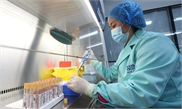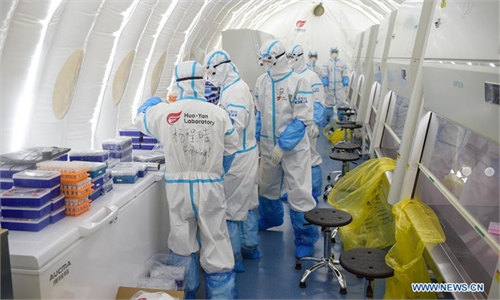China's gene testing giant to comply with local laws: BGI replies to GT regarding UK request to register prenatal test device by Sept 1

Photo: courtesy of BGI
BGI strictly complies with local laws, guidelines, and protocols, while adhering to internationally recognized ethical and legal standards, BGI told the Global Times on Friday regarding UK junior health minister's statement that BGI should register its prenatal test devices by September 1 should they wish to continue placing the products on the UK market.
The Medicines and Healthcare Products Regulatory Agency (MHRA) would classify BGI's test device as a List B In-Vitro Diagnostic, which requires the oversight of a conformity assessment body before being placed on the UK market, providing that Public Health England and NHS England have confirmed they do not use BGI technology in their genomic screening services, said James Bethell, undersecretary of the Department of Health & Social Care, on Thursday, as published on the UK parliament website.
"These devices do not appear to have been registered with the MHRA at this time, however, due to their risk classification, registration will be required from September 1 in order to continue placing the products on the market," said Bethell.
He also stressed that there are no grounds to prevent BGI Group operating in the UK provided they comply with UK legislation and regulatory requirements.
Bethell's statement is a response to a question by the parliament posted on July 19, asking if UK clinics are selling BGI Group's tests for genetic conditions and if BGI is using these tests to harvest the genetic data for millions of pregnant women.
The question followed a report by Reuters published on July 7, saying that through the Non-Invasive Fetal TrisomY (NIFTY) test - one of the most popular prenatal tests in the world, BGI collected data of genetic information about pregnant women, as well as personal details such as weight, height and nationality, but not their names.
In response, BGI said in July that it "has never been asked to provide, nor has it provided data from its NIFTY test to Chinese authorities for national security or national defense security purposes" and that "at no stage throughout the testing or research process does BGI have access to any identifiable personal data or the ability to match that data with personal records."
Contrary to the report by Reuters, DNA data collected from prenatal tests on women outside Chinese mainland are not stored on Chinese mainland's gene bank. All non-invasive prenatal test (NIPT) data collected overseas are stored in BGI's laboratory in Hong Kong and are destroyed after five years, as stipulated by General Data Protection Regulation, the group said.
Regrading data collection, Bethell noted that the UK's high standards of data protection will be maintained and enforced.
Global Times




